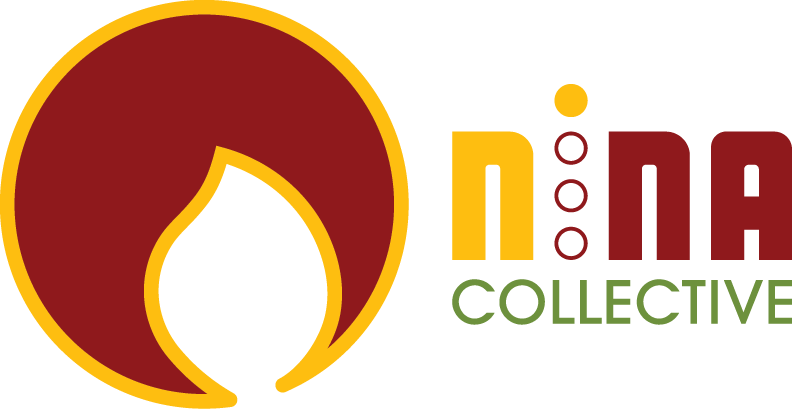Iteration for Liberation
As the year comes to a close, like many, we at the nINA Collective have reflected on the past year, and thought about the year to come. Our iteration process involves reflecting on the latest version of a training, process, or idea in order to evolve - continuously striving for shared liberation. In this process, we ask questions like what went well, what are we proud of, what are our hopes and dreams, how were we aligned with our values and purpose (or not), and how should we change.
This year, we are proud of surviving and thriving during a global pandemic when all of our ideas about relationships, learning, and consulting are constantly adapting. We partnered with over 60 organizations nationally and internationally, and we are so happy to announce that we have been able to add an administrative support person to our team to help us better serve our community. We have big dreams for the future.
We learned so many things, but specifically, we learned we are not everyone’s cup of tea - and that is ok. We also learned that when doing transformational change work, it is necessary to specifically build in a process to collectively agree on how to have generative and constructive conflict. Lastly, we learned how important it is to continually learn and grow together and to use those learnings to continue to co-create and model that another way is possible.
Based on these reflections, we are pivoting in the following ways in 2022.
We have decided to adapt our initial phase of work with new partners to be a sampler of our full phased approach, where, at the end of the phase, we will evaluate with our partners how the process has gone so far and whether we are the right fit for continued partnership. This is supportive to both nINA and our partner organizations in ensuring that we are all able to stay true to our values and purpose.
We have added developing a Conflict Resilience protocol to our phase one to ensure that all of our partners start developing the skills necessary to navigate conflict - which is inevitable when doing this work.
We’ve also added many new opportunities for co-learning: we have created a community of practice for nINA and other racial equity practitioners; we have added new training options for partners who have completed their initial contract with nINA; and we created a virtual co-learning community for current and past partners.
We are also building this type of reflection + iteration process into regular practice. You will often hear us say at nINA that in this work, we are building something nobody has seen before. We are co-creating teams and organizations that center racial equity, dignity, and liberation. It is always an experiment.
This perspective can be overwhelming and frustrating, but it can also be liberating. We try something, we assess, we pivot, and we try again. It removes some of the weight of needing to know all of the answers in advance (which none of us do,) and it simultaneously helps us build our feedback muscle. Regular, honest evaluation gets us to practice giving feedback in a constructive way that allows us to continuously improve in ways that are aligned with our values.
Here are some of the questions and tools we use at nINA for this process:
What went well?
What could have gone better?
What did we learn?
What should we do differently next time?
For more strategic reviews, some questions we recommend would be:
What are you proud of?
How were we aligned with our mission/values?
What are examples of times when we were either misaligned with our mission and/or values?
What are your hopes for the future?
We ask the questions together, and give people time to respond while we are together (5-10 minutes max). This takes some of the pressure off the process - we also usually play music while people respond to the prompts. You can do this in person with sticky notes and chart paper, or you can use an online tool like padlet, scrumbler, or jambord.
How might you build more regular experiment reviews into your team or organization? What structures are already in place that may benefit from a regular team review process? We wish you luck as you continue to - or begin to - incorporate more feedback loops into your practice in 2022.
